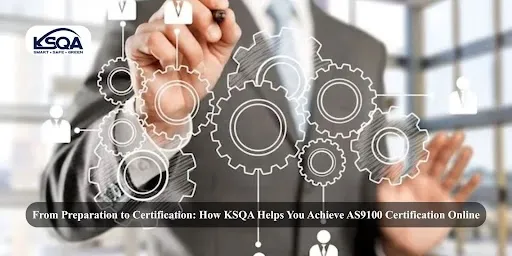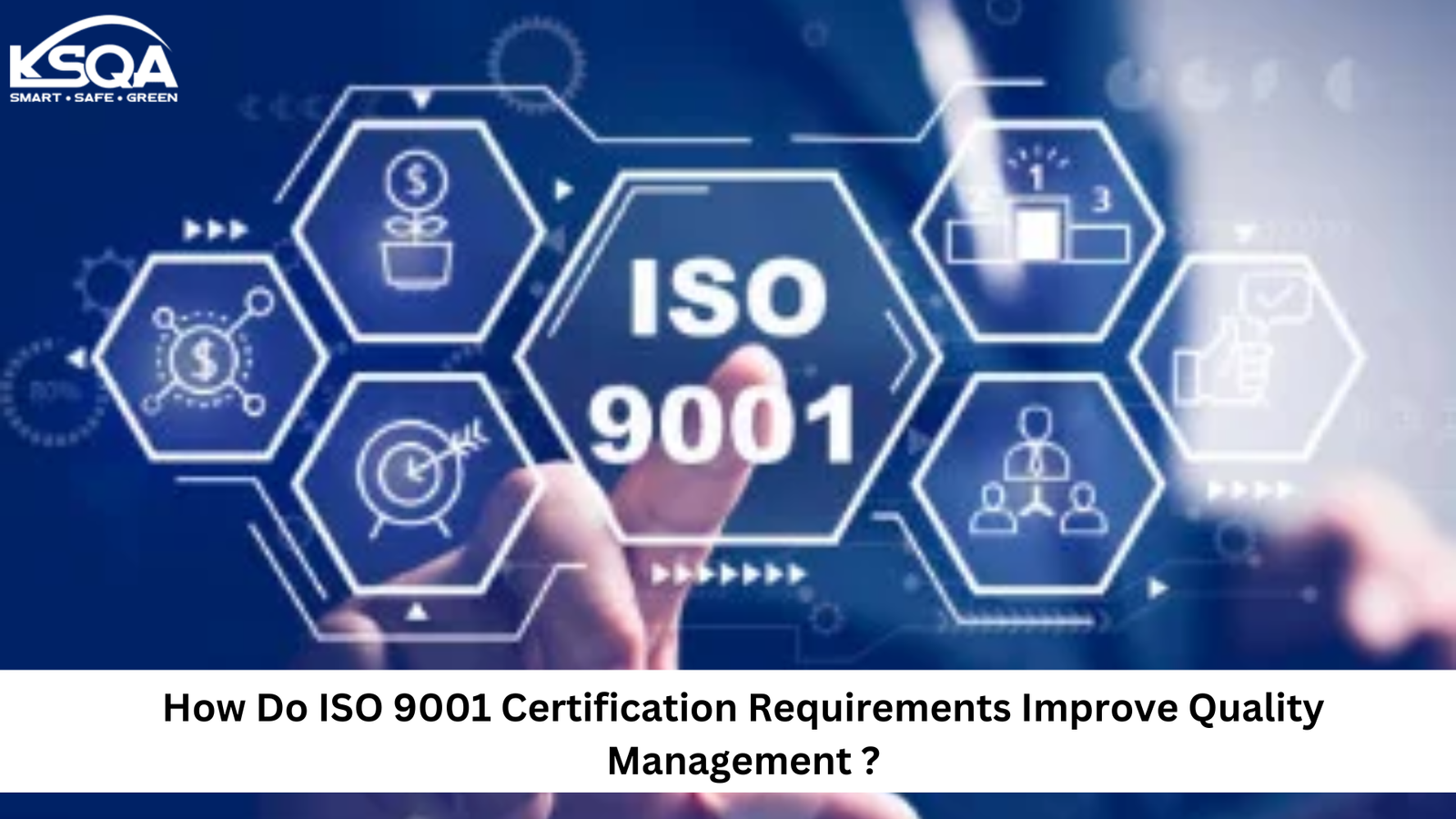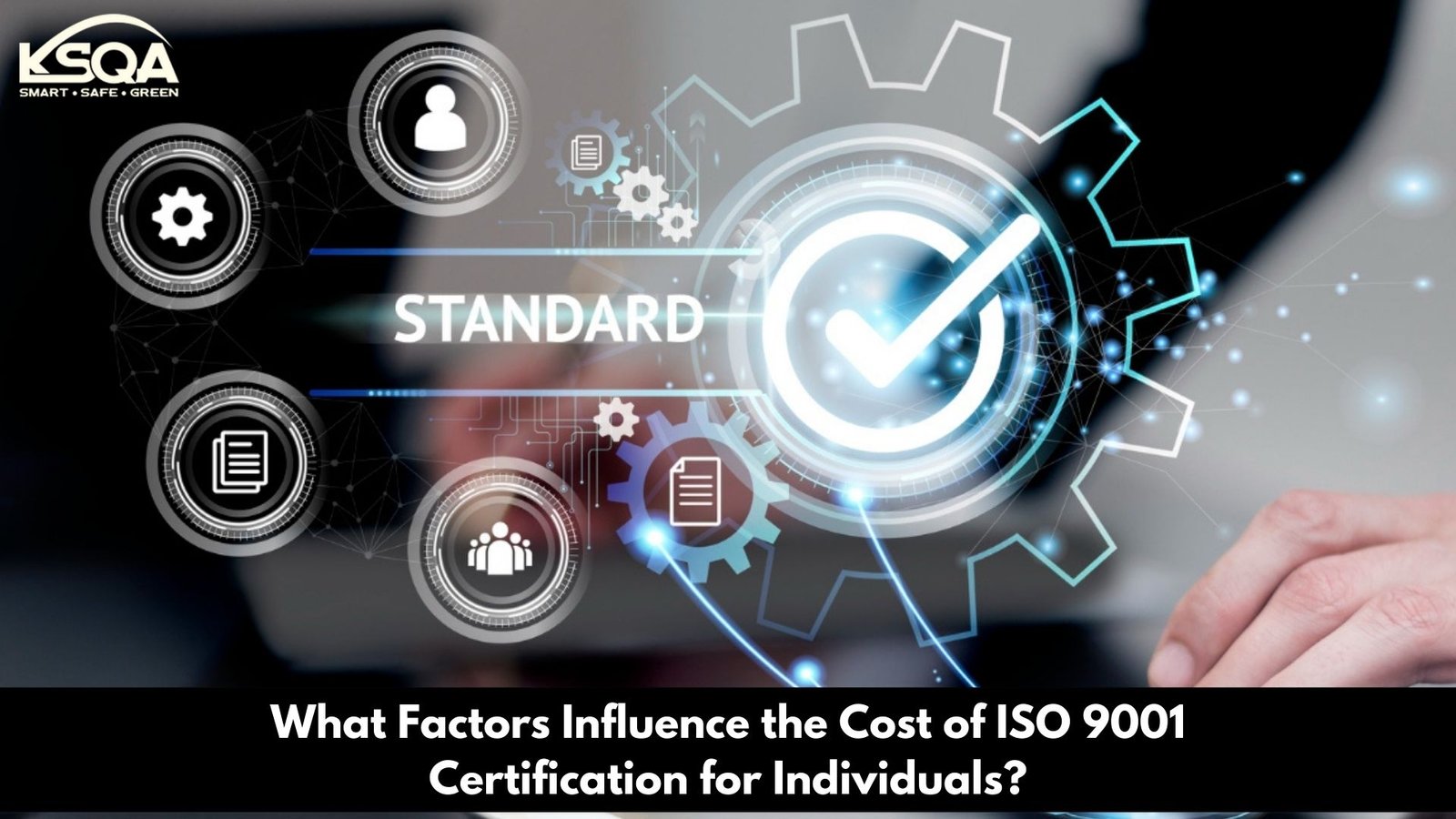How to Get ISO 9001 Certification in the USA: A Small Business Guide with KSQA Leading the Way!
(source: Wikimedia Commons, CC BY SA 4.0)
If you’re a small business wondering how to get ISO 9001 certification in the USA or looking for reliable guidance on ISO 9001 certification for small businesses, you’re in the right place.
As KSQA, an accredited third-party certification body based in Los Angeles, we’ve helped dozens of organizations become certified ISO 9001 auditors and obtain ISO-quality credentials.
This blog lays out a clear, practical step-by-step path and tips tailored to small businesses. Let’s dive in.
Why ISO 9001 Matters, Especially for Small Businesses
Before we get into how to get ISO 9001 certification in the USA, it helps to know why this standard can be a game changer for small businesses.
The ISO Survey 2023 counted over 1.2 million sites globally with valid ISO 9001 certificates (source).
The North America ISO Certification market was valued at approximately USD 4.1 billion in 2024, with the USA itself responsible for about USD 3.5 billion of that (source).
Small and medium enterprises (SMEs) that adopt ISO 9001 report measurable improvements: less waste, fewer defects, better customer satisfaction, and greater market credibility.
So if you’re a small business, having ISO 9001 certification can be the badge that opens doors, government contracts, bigger clients, and export possibilities and also gives you internal benefits. It’s not just for large corporations.
What ISO 9001 Actually Is
Here’s an overview in simple terms:
ISO 9001 is a globally recognized standard for quality management systems (QMS). It outlines what businesses should do to make sure their products or services consistently meet customer and regulatory requirements and that they keep improving.
The current version in use is ISO 9001:2015. It emphasizes things like risk management, consistent process performance, leadership involvement, and continual improvement.
Certification means an independent accredited third party (like KSQA) audits your business and verifies that your QMS meets all the requirements.
Step-by-Step: How to Get ISO 9001 Certification in the USA
Getting ISO 9001 certified doesn’t have to feel overwhelming. At KSQA, our job as an accredited third-party certification body is to make the process clear, impartial, and achievable for businesses of all sizes, especially small businesses. Here’s a practical roadmap showing not only what to do, but also how KSQA helps you at each stage.
KSQA’s Small-Business Tips for a Smooth Journey
Small businesses often have fewer people and tighter budgets, but ISO 9001 certification is absolutely within reach. Based on years of working with U.S. SMEs, KSQA recommends:
Prioritize Critical Processes First
Focus on the practices that directly affect product or service quality. KSQA auditors can tell you which areas are most heavily weighted during certification.
Keep Documentation Lean and Useful
ISO 9001 requires effective documentation, not mountains of paperwork. KSQA clarifies the minimum records needed, so you avoid unnecessary complexity.
Leverage What You Already Do Well
Many everyday practices (customer service procedures, order tracking, complaint handling) already meet parts of the standard. KSQA helps you recognize these strengths during audit planning.
Seek Help Strategically
KSQA doesn’t provide consulting, but we maintain a referral network of trusted consultants who specialize in small-business preparation. You decide if outside help fits your budget.
Balance Costs with Benefits
ISO 9001 certification is an investment that often pays for itself through fewer defects, improved efficiency, and access to new contracts. KSQA can provide a transparent quote so you can plan accurately.
Allow Realistic Time
Depending on readiness, small businesses typically need several months from gap analysis to certification. KSQA works with your schedule to minimize disruption and keep the process on track.
How Much Does ISO 9001 Certification Cost & How Long Does It Take?
These vary, but here are ballpark figures and factors to watch:
Cost depends on the size of the business (number of employees, number of sites), the complexity of your processes, how much documentation or corrective actions are needed, and the certification body’s fees.
For relatively small operations that already have some quality processes, auditing and certification might take 2-4 months from the start of gap analysis to the final certificate. If you need to build from scratch, it's more like 6+ months.
Keep in mind additional costs: internal audits, training, and possibly consulting. But many businesses recover costs through process efficiencies, better contracts, and fewer quality issues.
KSQA can provide a more precise cost/time estimate once we know your size, industry, and current readiness.
Common Pitfalls & How to Avoid Them
What to Do Next If You’re Ready
If, after reading this, you feel ready to move forward, here are your next practical steps:
Reach out to KSQA to schedule an initial consultation (audit scope discussion). We’ll ask about your business size, industry, locations, and current QMS status.
Decide if you also want ISO 9001 auditor certification for internal audit purposes. KSQA can handle that separately.
If needed, we can refer you to consulting firms that can help you with preparation, gap analysis, documentation, and training.
Set a timeline: when you want certification achieved, work backwards to plan tasks. Budget accordingly.
Begin internal preparation: assign responsibilities, gather existing process documents, and train staff.
Frequently Asked Questions (FAQs)
Is ISO 9001 certification mandatory for businesses in the USA?
No. ISO 9001 certification is voluntary. However, many government contracts, supply chain agreements, and large corporate clients strongly prefer or require it to ensure consistent quality and reliability.
How long is an ISO 9001 certificate valid?
An ISO 9001 certificate is typically valid for three years, provided the organization successfully completes required annual surveillance audits to demonstrate ongoing compliance.
Does ISO 9001 apply only to manufacturing companies?
Not at all. ISO 9001 is designed for any industry or sector, including manufacturing, service, healthcare, IT, education, and more. Any organization that provides products or services can implement a quality management system and seek certification.
What happens if a company fails the certification audit?
If an organization doesn’t meet all requirements during the audit, the certification body issues a report listing the nonconformities. The company is given time to correct the issues and can then undergo a follow-up audit to achieve certification.
Can ISO 9001 certification improve a company’s profitability?
Yes. While ISO 9001 itself doesn’t guarantee higher profits, it encourages process efficiency, waste reduction, and customer satisfaction, all of which can lead to cost savings and revenue growth over time.
Final Thoughts: Ready to Start Your ISO 9001 Journey?
Getting ISO 9001 certification for your small business is a strategic move that pays off in customer trust, operational efficiency, and long-term growth. With KSQA as your accredited certification partner, you’ll have a clear, transparent process and a team that’s committed to your success from the first phone call to your surveillance audits years down the road.
Whether you’re ready to schedule an audit, request a cost estimate, or simply learn more about what ISO 9001 certification could mean for your business, KSQA is here to guide you.
Visit our website today to request a consultation and start planning your ISO 9001 certification with confidence.

.webp)




